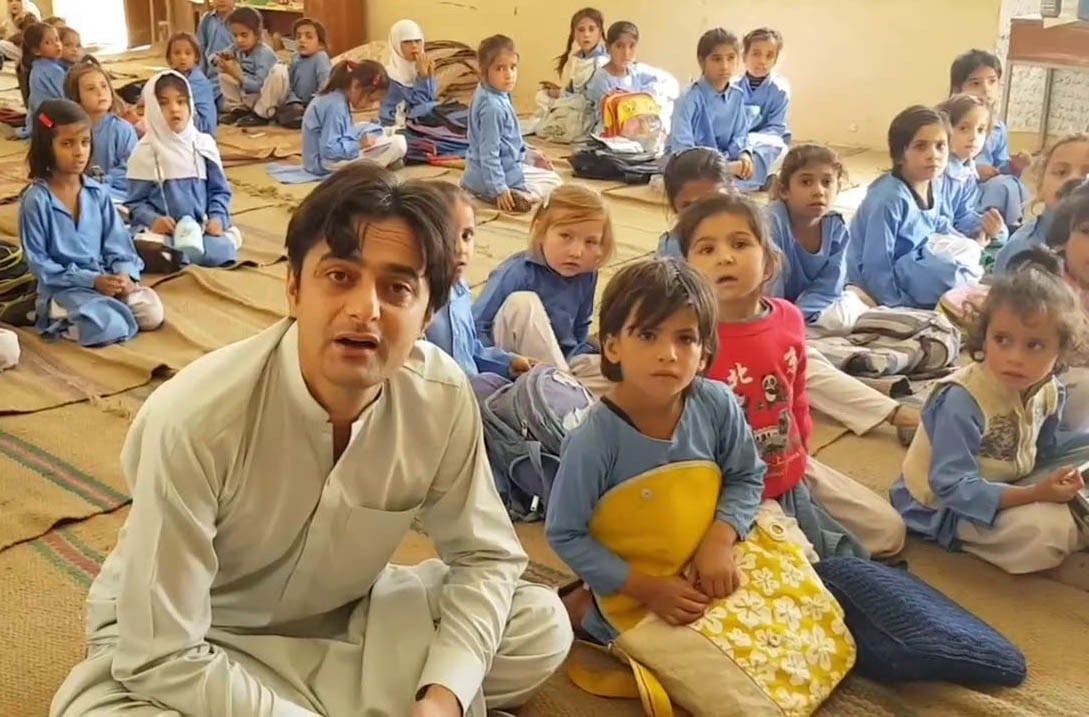
Politicisation of education department and lack of political will keep Balochistan from better learning scores

In January 2014, when Dr Malik Baloch announced the imposition of an educational emergency in Balochistan it was considered as a revolutionary move. This Educational emergency was not only meant to increase education funding in Balochistan but also to usher in an era of reforms. However, four years down the road, the condition of education in the province seems unchanged.
The first thing which the Dr Malik Baloch-led government did was to increase the education budget of Balochistan. In 2013-14, education made up 17 per cent budget of the province and by 2016-17 it reached 20 per cent. It did not help because increasing the education budget was not the only solution to educational problems in Balochistan. Spending on per student in Balochistan is higher as compared to other provinces, yet the learning scores of Balochistan are lowest among all provinces. Furthermore, analysis of last five education budgets show the Balochistan government failed to utilise one-third of the funds allocated for education development.
Last month education advocacy group ‘Alif Ailan’ launched a report Five Years of Education Reforms: Wins, losses and challenges for 2018-2023. This report acknowledged the educational reforms taken by the government in the form of Balochistan Education Sector Plan, merit-based recruitments of teachers, increase in number of schools, and devolution of education amongst other things. At the same time the report raised questions on the real impact of the aforementioned reforms. The report concluded that "Enrolment, retention, learning outcomes, and school infrastructure all continue to pose substantial challenges to the provincial authorities."
However, Noor-ul-Haq Baloch, Secretary Secondary Education, does not agree with the contents of the report. He told TNS, "Although there are problems in the education sector of Balochistan, the Alif Ailan report does not match with ground realities."
While analysing the education system in Balochistan, the biggest problem which is politicisation of education is often ignored. Education is the largest department of the Balochistan government -- employees and budget wise -- and whoever is in power uses it to meet political ends. This, in turn, has crippled the entire education apparatus in the province.
In January 2017, 38 key positions of education department were lying vacant and 25 of those positions were given in "Look after Charge" to junior officers. The reason was that political bosses running the education department could force the junior officers to fulfil their self-serving agenda in a better way as compared to when senior officers are in charge of key positions.
A senior official, who served in the education department, agrees that political bosses have destroyed the education department in Balochistan. He told TNS on condition of anonymity, "Education department is destroyed because political bosses use it to reward their support base which is mostly teachers or union leaders." He claimed that large chunks of education development funds are diverted to mere school construction because it is a lucrative business for contractors.
Zahid Mengal, a civil society member working on education, believes that in the initial years of this government two very strong and competent education secretaries lead the reforms. "Afterwards ruling political parties did not prioritise education and the loss of political support resulted in further deterioration of education."
Education Ministry of Balochistan, in the last two and a half years, effectively rolled back the reforms made in the first half of this government. The only way to improve the education sector of Balochistan is to depoliticise it. It’s easier said than done but it’s not impossible for a democratically elected government.
Any party or a coalition that comes in power should adopt education as the core agenda and religiously work for improvement. The use of education as a prized ministry should come to an end. At the moment, education department is the most sought after ministry due to its influence and opportunities for corruption. Education department should be handed over to expert educationists.
Another important reform would be to prevent teachers from doing election duties. Teachers get their undue power and influence because they are the ones who conduct elections on ground as presiding officers and polling staff. In fact, a summary was prepared a few years ago to separate teachers from election duties in Balochistan, but chief secretary at that time torpedoed the proposal.
As general elections are round the corner, people of Balochistan should support a candidate or political party keeping in view their commitment to education and past performance.